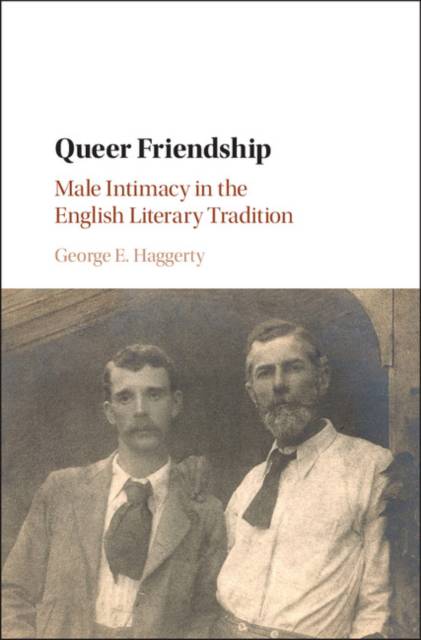
Bedankt voor het vertrouwen het afgelopen jaar! Om jou te bedanken bieden we GRATIS verzending (in België) aan op alles gedurende de hele maand januari.
- Afhalen na 1 uur in een winkel met voorraad
- In januari gratis thuislevering in België
- Ruim aanbod met 7 miljoen producten
Bedankt voor het vertrouwen het afgelopen jaar! Om jou te bedanken bieden we GRATIS verzending (in België) aan op alles gedurende de hele maand januari.
- Afhalen na 1 uur in een winkel met voorraad
- In januari gratis thuislevering in België
- Ruim aanbod met 7 miljoen producten
Zoeken
Queer Friendship
Male Intimacy in the English Literary Tradition
George E Haggerty
Hardcover | Engels
€ 183,45
+ 366 punten
Omschrijving
Friendship in the classical world was celebrated as among the highest human achievements: nothing was more likely to lead to the divine than looking for it in the eyes of a friend. In exploring the complexities of male-male relations beyond the simple labels of sexuality, Queer Friendship shows how love between men has a rich and varied history in English literature. The friend could offer a reflection of one's own worth and a celebration of a kind of mutuality that was not connected to family or home. These same-sex friendships are memorable because they give shape to the novels of which they are a part, and question the assumption that the love between friends is different from the love between lovers. Queer Friendship explores English literary friendship in three ways: the elegiac, the erotic, and the platonic, by considering a myriad of works, including Sterne's Tristram Shandy, Tennyson's 'In Memoriam A. H. H.', and Dickens' Great Expectations.
Specificaties
Betrokkenen
- Auteur(s):
- Uitgeverij:
Inhoud
- Aantal bladzijden:
- 208
- Taal:
- Engels
Eigenschappen
- Productcode (EAN):
- 9781108418751
- Verschijningsdatum:
- 29/03/2018
- Uitvoering:
- Hardcover
- Formaat:
- Genaaid
- Afmetingen:
- 185 mm x 235 mm
- Gewicht:
- 435 g

Alleen bij Standaard Boekhandel
+ 366 punten op je klantenkaart van Standaard Boekhandel
Beoordelingen
We publiceren alleen reviews die voldoen aan de voorwaarden voor reviews. Bekijk onze voorwaarden voor reviews.









